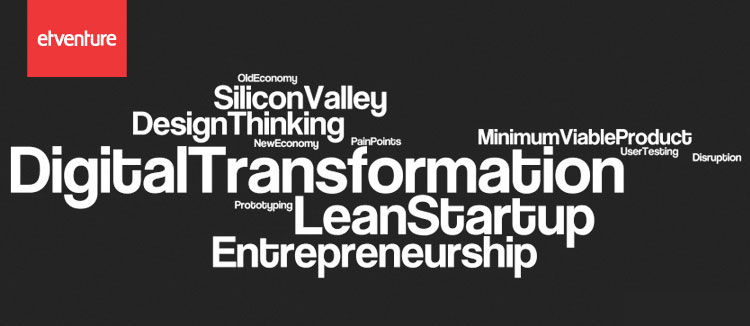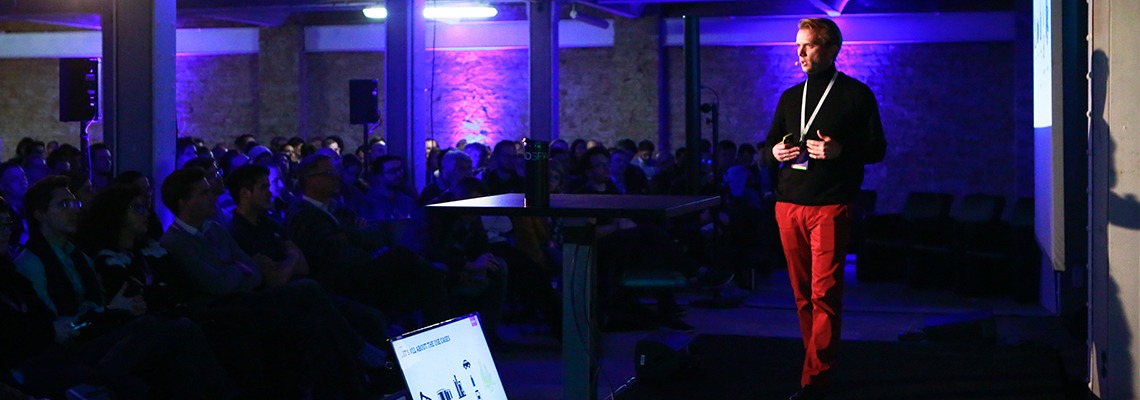Digitization and digital transformation – an overview of the most important topics from the month of September
30. September 2016
What did September bring in the way of digitization news? It is the end of the month and, as usual, we are providing an overview of the most important topics in the media. This blog covers Daimler’s digital offensive, the need for changes to corporate culture, and the advantages of digitization in respect to social equality.
Daimler restructures its company for digitization (FAZ)
A quick look at Daimler’s recent sales figures is enough to show that it is in a good position. The Stuttgart-based automobile manufacturer has overtaken its competitors Audi and BMW again. Nevertheless, Daimler CEO Dieter Zetsche doesn’t want to rest on his laurels. Zetsche is planning drastic structural changes in order to better prepare the company for digitization. “Our plan is that within a short period of time, six months or a year, around 20 percent of our employees will be working within a crowdsourcing model,” he recently told the Frankfurter Allgemeine Zeitung (FAZ). The goal is to follow the example of startups and to make the whole company more agile, adaptable and decisive. To do this, Daimler is dismantling the existing hierarchical structures. The plan is for employees to be able to work on tasks according to subject matter, without being allocated to a specific department.
This shows that Zetsche has understood that digitization also makes it necessary for companies to undergo cultural change. Yet it will not be easy for a company like Daimler, which has had established structures and processes for decades, to be transformed into a company that is agile and has a startup mentality. This is a point made by Philipp Depiereux, Founder and Managing director of etventure, in his column for BILANZ entitled ‘The Digital Entrepreneur’. Digitization requires a change of perspective – away from engineering-based perfectionism and toward rapid, agile product development that uses startup methods. For many engineers, this will be a culture shock!
How digitization is changing corporate culture (FAZ)
The change in culture that Daimler is currently pursuing shows that it is one of the pioneers in the automobile industry. For many other companies, digital transformation and the associated changes in corporate culture are still seen as great unknowns. While corporations such as Daimler are already establishing startup structures, building their own digital units and creating virtual jobs, other companies would be taking a giant leap forward if they established a modern intranet system. Indeed, it is not only the business models that need to be adapted to digital requirements. Changes must also be made to the way teams work together and to internal communications. The article zooms in on the central issue: “Technological improvements within companies must only happen in response to a specific need. There will be no employee acceptance of technological progress if it is perceived to be a gimmick.”
Yet until now, the potential for using digital tools to boost the productivity and efficiency of teamwork has hardly been tapped at all. With digitization, many companies simply do not know where to start. In particular, there are very high levels of demand in the area of executive education. This is because there is a lack of digital expertise among employees – especially among managers. This is also attested to by Mathias Weigert, CEO of Unternehmer-Schmiede, which is a joint venture between etventure and Kienbaum: “Digital entrepreneurs, who are very much all-rounders, do not currently exist on the market.”
Digitization is the biggest leveler of our age (Süddeutsche Zeitung)
Leaving aside the prospects of the economy and of companies, what opportunities and improvements does digitization bring for society as a whole? This is the question addressed by the Süddeutsche Zeitung newspaper. When Apple presented the iPhone in 2007, “digitization found its most visible expression yet,” writes the paper’s editor, Guido Bohsem. He continues: “The smartphone is almost unparalleled as a symbol for the way that people are connected with each other and for the way that machines are connected to each other.” The way that the smartphone has moved from being an overpriced digital toy to being an indispensable everyday object that everyone has is an excellent example of digitization contributing to an increase in social equality. This is particularly pertinent in relation to accessing information, cultural services and education. On the internet, the world’s knowledge can be accessed for free. The internet also creates equality when it comes to consumer goods – at least when it comes to availability. Amazon and similar companies make even the most unusual of products accessible to people anywhere. When compared to the way things used to be, even those living in rural areas can now buy these kinds of things easily.
Furthermore, digitization will also be beneficial for the world of work and will increase equality. For example, the increased use of robots will mean that dangerous jobs can be taken on by machines. This will remove the division of jobs into the categories of ‘safe’ and ‘dangerous,’ whereby physical reasons meant that ‘dangerous’ jobs could only be done by men and not by women. The technological possibilities also make many things easier for family life. Flexible working hours, either at the office or at home, free up more time for looking after children.
Nevertheless, digitization is viewed from a very critical perspective and negative effects are often portrayed too drastically. The reason for this is fear about new and unknown things, and about the speed with which the digital transformation is taking place. Yet in order to be able to profit from the benefits of digitization, we need to accept these changes and keep up with the rapid pace of digitization.





* Required field